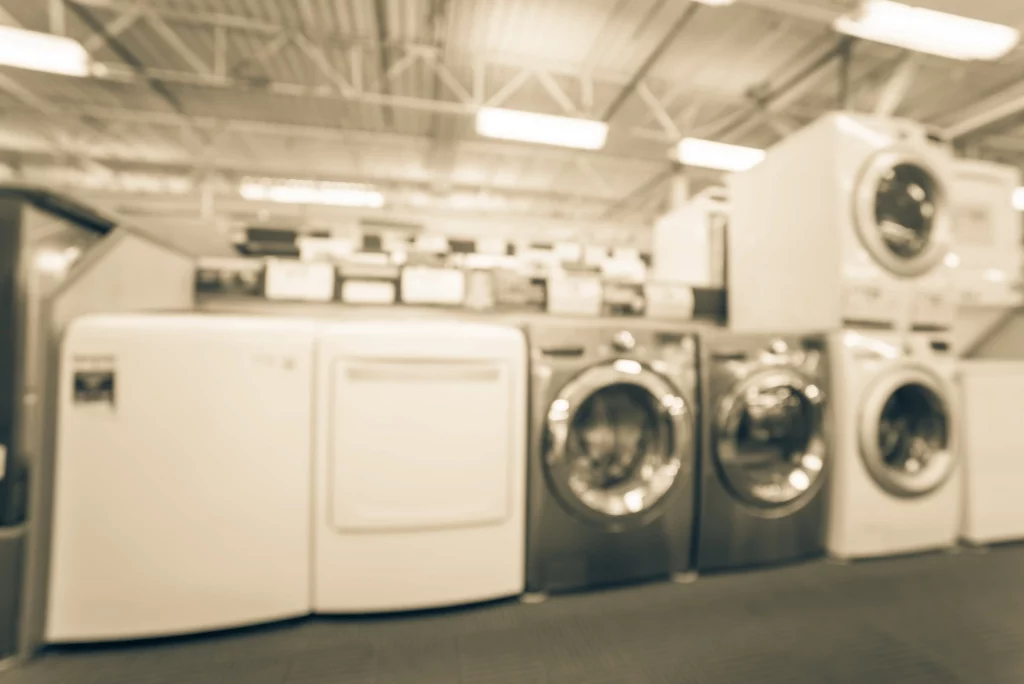 Get How-To's
Get How-To's
Laundry Symbols: Your Guide to Garment Care
How Often Should You Wash Your Sheets? Find Out!
Read tips, tricks, and how-to’s on our Fabric of Life blog.
Garment Guides

When shopping for a new clothes dryer, you may have to choose between a gas dryer and an electric dryer. Each type offers unique benefits, from energy efficiency to installation requirements. By understanding the key differences between gas and electric dryers, you can select the best option for your home—one that aligns with your needs, budget, and laundry room layout.
The two main categories for dryers are gas dryers and electric dryers. Gas dryers run on natural gas or liquid propane gas, meaning these require a home to have a gas hookup, as well as a dryer vent to ensure safety. While the installation and labor costs may be higher for gas dryers, they are generally more energy efficient. The more efficient a dryer can heat clothes, the lower the operational costs. However, the cost of running a gas dryer ultimately depends on the local gas prices in your area.
Electric dryers on the other hand rely on electricity and a 240-volt outlet, making the installation process easier. Some electric models include heat pump technology, which can reduce energy consumption, creating energy saving in the long run. Furthermore, since these dryers use a renewable resource, they have less overall environmental impact over their gas counterpart.
A gas burner is used to operate gas dryers, powering them with natural gas or liquid propane gas. These dryers burn the gas, to generate heat which is then circulated by an electric fan to dry the clothing. Gas dryers typically finish their drying cycles quicker as they tend to heat faster than dryers that solely rely on electricity. However, a gas dryer will require a dryer vent to expel carbon dioxide and moisture, keeping your home safe from fires and carbon dioxide poisoning.
In an electric dryer, a heating element powered by electricity is used to generate heat which dries the clothing. Once again, these types of dryers require a 240-volt outlet in order to complete the installation. Certain models use heat pump technology to recycle the hot air produced with can significantly reduce energy consumption and add to energy savings. Without heat pump technology, electric dryers may have a higher energy consumption, leading to a less affordable monthly bill.
While moisture and heat sensors are not a must for an operating dryer, both gas dryers and electric dryers typically offer these bonus features. These sensors prevent over drying clothing which can not only damage delicate garments but also add to energy consumption. With these sensors, the dryer can come to a stop or shift to tumble mode once the clothing is dry, improving its energy efficiency.
Gas dryers produce rapid, intense heat that can shorten drying time, helping you save both time and energy in the long run. Additionally, gas dryers tend to have lower operational costs in areas with low gas prices, though this depends on whether gas or electricity is more affordable in your region.
Installation costs are also a factor to consider. Homes that already have a gas furnace or gas water heater typically have the necessary connections, making it easier and more cost-effective to install a gas dryer.
Gas dryers may have higher upfront costs if there is not already a gas hookup in place. This is common in older homes and makes installation more complex and costly. These dryers also have the added cost of a dryer vent installation, which can increase the initial costs. Furthermore, with any gas appliance, homeowners will want to invest in carbon monoxide detection to ensure safety.
Another drawback of gas dryers is that they rely on fossil fuels which contribute to carbon dioxide emissions. While some may feel the emissions are negligible, eco-conscious buyers may be turned off by this disadvantage.
One of the main advantages of an electric dryer is its easy installation. Since these dryers only require a standard 240-volt outlet (as with heat pump dryers), installation is generally quick and straightforward. Electric dryers are also appealing to environmentally conscious buyers, as electricity can come from renewable sources, and many electric dryers use heat pump technology to recycle hot air for added efficiency.
Electric dryers are also considered easier to maintain. They have fewer components and generally require less attention over time, making them a convenient option for those who prefer appliances with lower maintenance requirements.
While electric dryers may be better for the planet, they aren’t better for our limited schedules. These dryers take more time to heat, prolonging the drying process. With a longer cycle also comes higher operational costs, which can feel harsh in areas where electric rates are on the higher side. Traditional electric dryers will also have higher operational costs since they often lack a heat pump. Without recycled hot air, costs in high usage laundry rooms can add up quickly.
The right dryer choice for you depends on both your needs and where you live, as local gas and electricity prices contribute to overall costs. Consider the factors above to make an informed decision and find the right dryer for your home.
For more information on laundry care and services, visit CD One Price Cleaners. We’re a dedicated group of individuals looking to improve the dry cleaning and laundry experience for you. Visit our website today!
Q: How to Tell if a Dryer is Gas or Electricity?
A: The easiest way to identify if a dryer is gas or electric is to look at its hook ups. Behind your dryer will either be a 240-volt outlet or a gas connection. Whichever connection your dryer has will indicate its heating source.
Q: How Much Do Gas Dryers Cost?
A: Most gas dryers are priced between $600-$950 with some models being $1,000+. The final price will depend on features that may make the drying process quicker and more efficient.
Q: How Much Do Electric Dryers Cost?
A: The price of an electric dryer depends on its models and features. Most electric dryers cost between $400 to $750, with some higher-end models reaching over the $1,000 mark.
Q: How Much Electricity Does a Dryer Use?
A: The amount of electricity a dryer uses depends on many factors including dryer age, wattage, efficiency, number of weekly uses, dryer settings, and load sizes. Keeping these factors in mind can help lower the amount of electricity your dryer uses. For example, drying smaller loads on a low temperature setting can reduce electricity usage.
Q: Do Electric Dryers Need a Vent?
A: The short answer is no; electric dryers do not need a dryer vent. This is because, unlike gas dryers, electric dryers do not emit any carbon dioxide. With the use of only electricity, homeowners don’t need to worry about carbon monoxide poisoning or gas accumulation. That said, gas dryers DO need proper ventilation, hence the required dryer vent. Without its harmful gas can build up which can be lethal if not detected quickly.